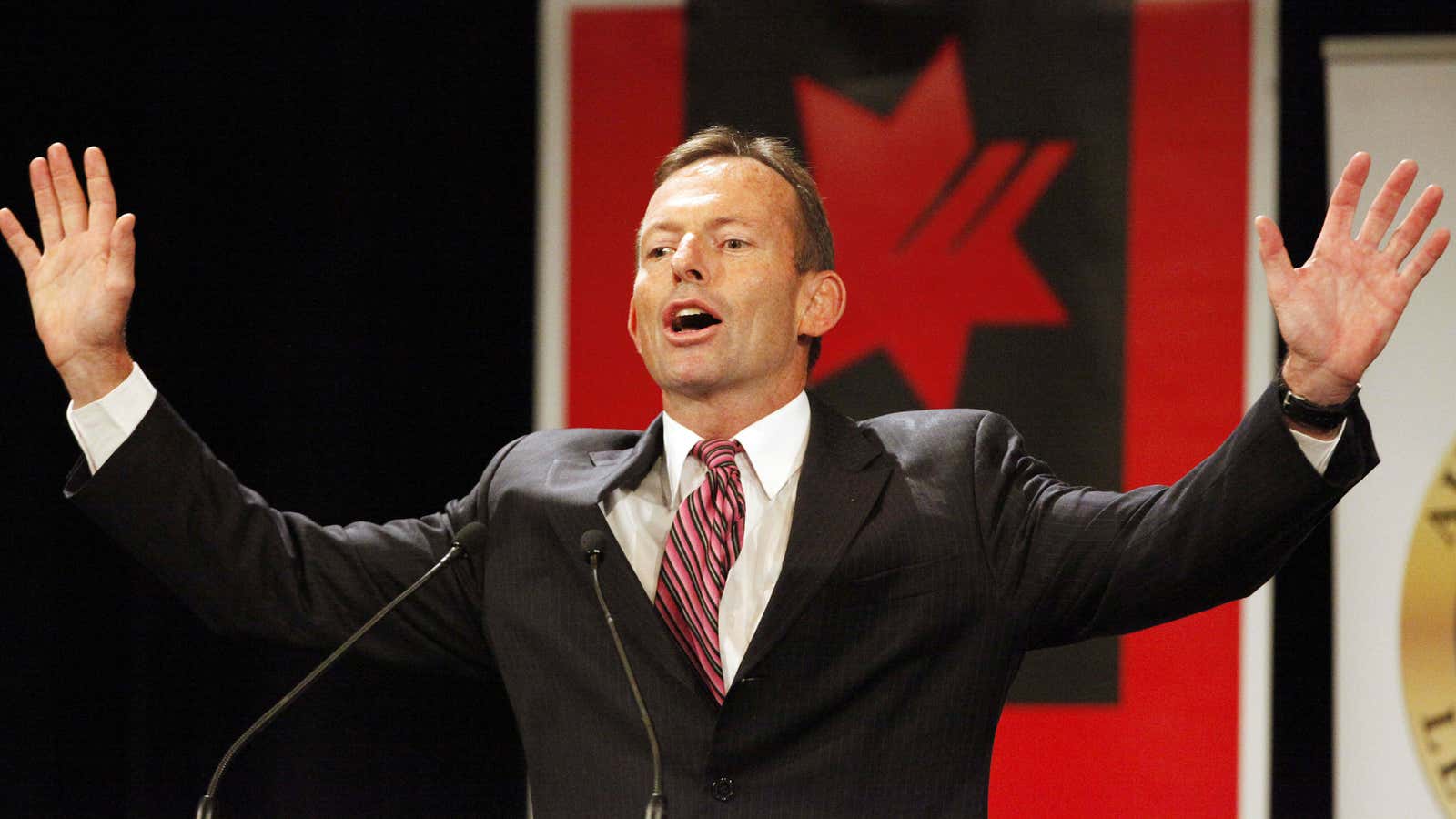This post has been updated.
Australia’s abrasive and deeply unpopular prime minister, Tony Abbott, has been ousted by the Liberal Party, with Malcolm Turnbull taking over as party leader. It’s the latest in a series of political upheavals in Australia—once Turnbull is sworn in, the nation will have had five prime ministers in the last five years.
Turnbull, a former barrister and journalist, was himself ousted by Abbott as party leader six years ago, in a dispute over climate change policy. Under Abbott, Australia’s carbon emission reductions have been widely criticized as insufficient, and Abbott has expressed doubts over whether humans have caused climate change at all.
Many Australians have long viewed Abbott’s oddball decisions–such as awarding an Australian knighthood to England’s Prince Phillip–with derision, and he is seen as weak and untrustworthy due to his sudden shifts on major issues, like his recent announcement to grant 12,000 Syrian refugees asylum. His harsh budgets have been widely unpopular and ineffective, with the end of the commodities boom leaving Australia’s economy exposed and its debt rising to levels that the International Monetary Fund have warned are unsustainable.
Turnbull highlighted Abbott’s lack of “economic leadership” at a press conference in the Australian capital, Canberra. “This course of action has been urged on me by many people over a long period of time,” Turnbull said. “It is clear that the people have made up their mind about Mr Abbott’s leadership.”
Abbott has also alienated many of his Liberal Party colleagues by not conferring with them, justifying his unilateral decisions as a “captain’s pick.”
An August 2015 poll by Galaxy Research showed 63% of Australians were “dissatisfied” with Abbott’s performance as Prime Minister.
Turnbull was joined today by one of Abbott’s most senior cabinet members, Australian foreign minister and deputy leader of the Liberal Party, Julie Bishop—a sign of how fierce party sentiment is against Abbott. Bishop supported Abbott during a previous leadership challenge.
Under Australia’s system of parliament, voters elect a member of parliament, and the party with the largest number of seats forms the government, with the party’s leader becoming prime minister. Leaving an unpopular prime minister in place would have been political suicide for the Liberal Party when Australia goes to the polls next September.
